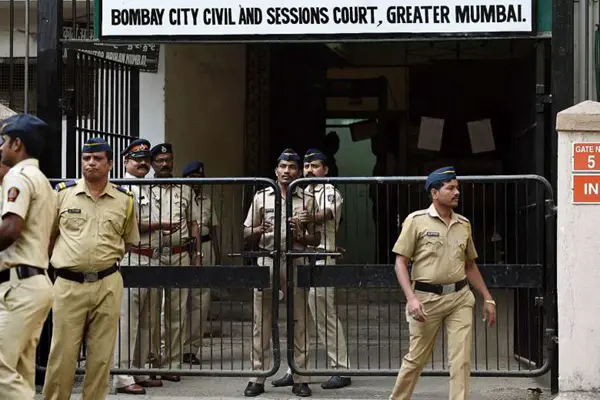An emotional plea by India's top judge to Prime Minister Narendra Modi to appoint more judges has put the spotlight on the country's overburdened justice system, which has a chronic backlog of more than 33 million cases.
India's legal system moves slowly, weighed down by an overwhelmed judiciary and poor infrastructure.
Litigants are forced to make countless rounds of the courthouse, amid multiple adjournments. It is common for witnesses and even the accused to die before their cases are heard in court, as the process could drag on for decades.
At a seminar of chief ministers and judges on Sunday, India's Chief Justice T.S. Thakur gave some sobering statistics: An Indian Supreme Court judge handles around 2,600 cases a year, compared to 81 by an American judge.
"We want people to come and Make in India (in manufacturing); we want people to come and invest in India. But those who we are inviting are also concerned about the ability of the judicial system in the country to deal with cases and disputes that may arise out of such investments," said Mr Thakur.
"I feel that if nothing else has worked till now in terms of improving conditions of the judiciary, an emotional appeal may work."
Increasing the strength of the judiciary has been on the government's agenda for years. A recommendation of a five-fold increase in the judges' strength has yet to be implemented.
There are currently 21,000 judges for a 1.25 billion population, with the Supreme Court short of six judges, high courts short of 464 and the lower courts short of nearly 5,000.
Some 145 judges' appointments were made over the last eight months, amid an ongoing tussle between the government and the judiciary.
The former tried to replace the existing collegium system, where all appointments are done by judges, with another system where politicians are also part of the selection panel.
The idea was shot down by the Supreme Court in October last year.
Still, legal experts say the appointment of judges is just one part of the problem; India's court system is in need of an overhaul - from increasing the strength of court staff to introducing a more efficient system for judges to track their cases.
"It is not enough to appoint additional judges. There needs to be capacity built within the judiciary. You need to make sure the system is efficient, and that is something that is not happening," said Mr Harish Narasappa, a lawyer and founder of Daksh, a non-profit organisation that focuses on judicial and political issues.
"I feel a lot of momentum gathering on this issue; hopefully, something should change."
A Daksh survey found that delays were caused by judges not passing judgments quickly, litigants not showing up on the fixed dates, and a lack of judges in the subordinate courts.
In an editorial, The Indian Express noted that "the judiciary is not blameless", saying it needed to "speed up its processes".
Still, the victims and their families have the toughest wait.
Ms Neelam Krishnamoorthy was 38 when she lost her 17-year-old daughter and 13-year-old son in a cinema hall fire in which 59 people were killed.
Nearly 19 years later, she is still stuck in the court process.
The owners of the cinema hall - Gopal and Sushil Ansal - were found guilty of negligence last year but were let off with a fine of 600 million rupees (S$12 million).
The Supreme Court has agreed to hear a review plea, but a date has yet to be fixed.
"We thought it would be over in three to four years, not 20 years," said Ms Krishnamoorthy, who has attended nearly every court date and is part of an association of families of the victims.
She said, for a start, the "culture of adjournment had to go".
"I have spent more time in court trying to seek justice than the 13 and 17 years' time I got to spend with my children. It takes a toll."
(THE STRAITS TIMES)
 简体中文
简体中文

